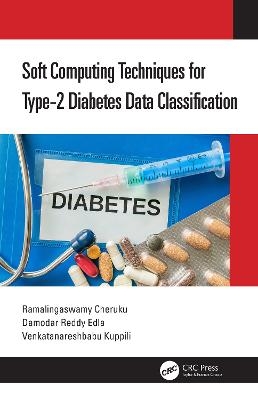
Soft Computing Techniques for Type-2 Diabetes Data Classification
Chapman & Hall/CRC (Verlag)
978-0-367-23654-0 (ISBN)
Introuducing an optimized RBFN model called Opt-RBFN.
Designing a cost effective rule miner called SM-RuleMiner for type-2 diabetes diagnosis.
Generating more interpretable fuzzy rules for accurate diagnosis of type2 diabetes using RST-BatMiner.
Developing accurate cascade ensemble frameworks called Diabetes-Network for type-2 diabetes diagnosis.
Proposing a Multi-level ensemble framework called Dia-Net for improving the classification accuracy of type-2 diabetes diagnosis.
Designing an Intelligent Diabetes Risk score Model called Intelli-DRM estimate the severity of Diabetes mellitus.
This book serves as a reference book for scientific investigators who need to analyze disease data and/or numerical data, as well as researchers developing methodology in soft computing field. It may also be used as a textbook for a graduate and post graduate level course in machine learning or soft computing.
Dr. Ramalingaswamy Cheruku is currently working as an Assistant Professor at Dr. Shyama Prasad Mukherjee International Institute of Information Technology, Naya Raipur, India. He has obtained Ph.D. in Computer Science and Engineering from National Institute of Technology Goa, India in 2018. He received B.Tech. degree in CSE from JNT University, Kakinada campus in 2008, M.Tech. degree in CSE from ABV-Indian Institute of Information Technology, Gwalior in 2011. He has served as developer in Tata Consultancy Services for 2 years. He has also published several papers in reputed journals and conferences. Dr. Damodar Reddy Edla is an Assistant Professor in the department of Computer Science and Engineering at National Institute of Technology Goa, India. He received M.Sc. Degree from University of Hyderabad in 2006, M. Tech. in Computer Application and Ph. D. Degree in Computer Science and Engineering from Indian School of Mines Dhanbad in 2009 and 2013 respectively. His research interests include Cognitive Neuroscience, Data Mining, Wireless Sensor Networks and Brain Computer Interface. He has published more than 90 research articles in reputed journals and International conferences. He is senior member of IEEE and IACSIT. He is also Editorial Board member of several International journals. Dr. Venkatanareshbabu Kuppili, Ph D (IIT Delhi), is with the Machine Learning Group, Department of CSE, NIT Goa, India, where he is currently an Assistant Professor. He was with Evalueserve pvt. ltd, as a Senior Research Associate. He is also actively involved in teaching and research development for the Graduate Program in Computer Science and Engineering Department at the NIT Goa. He has authored several research papers published in reputed International journals and conferences. He is senior member of IEEE.
Preface
Author Bio
Introduction
Literature Survey
Classifcation of Type-2 Diabetes using CVI based RBFN
Classifcation of Type-2 Diabetes using Spider Monkey Crisp Rule Miner
Classifcation of Type-2 Diabetes using Bat based Fuzzy Rule Miner
Classifcation of Type-2 Diabetes using Dual-Stage Cascade Network
Classifcation of Type-2 Diabetes using Bi-Level Ensemble Network
Intelli-DRM: An Intelligent Computational Model for Fore-casting Severity of Diabetes Mellitus
Conclusion and Future Research
Bibliography
| Erscheinungsdatum | 24.04.2020 |
|---|---|
| Zusatzinfo | 55 Tables, black and white; 36 Illustrations, black and white |
| Sprache | englisch |
| Maße | 156 x 234 mm |
| Gewicht | 453 g |
| Themenwelt | Mathematik / Informatik ► Informatik ► Datenbanken |
| Informatik ► Theorie / Studium ► Künstliche Intelligenz / Robotik | |
| Informatik ► Weitere Themen ► CAD-Programme | |
| ISBN-10 | 0-367-23654-0 / 0367236540 |
| ISBN-13 | 978-0-367-23654-0 / 9780367236540 |
| Zustand | Neuware |
| Informationen gemäß Produktsicherheitsverordnung (GPSR) | |
| Haben Sie eine Frage zum Produkt? |
aus dem Bereich


